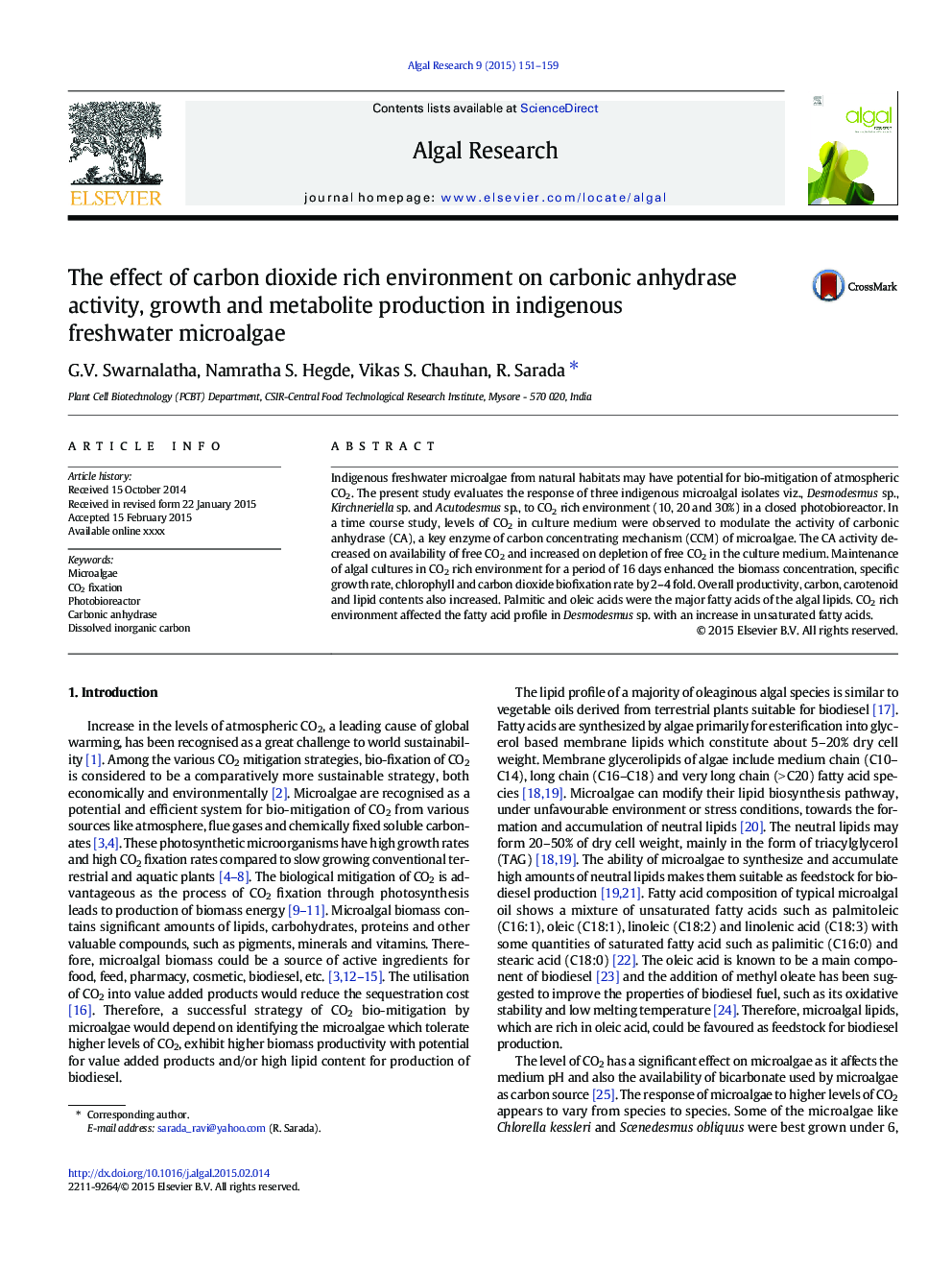| Article ID | Journal | Published Year | Pages | File Type |
|---|---|---|---|---|
| 8088179 | Algal Research | 2015 | 9 Pages |
Abstract
Indigenous freshwater microalgae from natural habitats may have potential for bio-mitigation of atmospheric CO2. The present study evaluates the response of three indigenous microalgal isolates viz., Desmodesmus sp., Kirchneriella sp. and Acutodesmus sp., to CO2 rich environment (10, 20 and 30%) in a closed photobioreactor. In a time course study, levels of CO2 in culture medium were observed to modulate the activity of carbonic anhydrase (CA), a key enzyme of carbon concentrating mechanism (CCM) of microalgae. The CA activity decreased on availability of free CO2 and increased on depletion of free CO2 in the culture medium. Maintenance of algal cultures in CO2 rich environment for a period of 16Â days enhanced the biomass concentration, specific growth rate, chlorophyll and carbon dioxide biofixation rate by 2-4 fold. Overall productivity, carbon, carotenoid and lipid contents also increased. Palmitic and oleic acids were the major fatty acids of the algal lipids. CO2 rich environment affected the fatty acid profile in Desmodesmus sp. with an increase in unsaturated fatty acids.
Related Topics
Physical Sciences and Engineering
Energy
Renewable Energy, Sustainability and the Environment
Authors
G.V. Swarnalatha, Namratha S. Hegde, Vikas S. Chauhan, R. Sarada,
